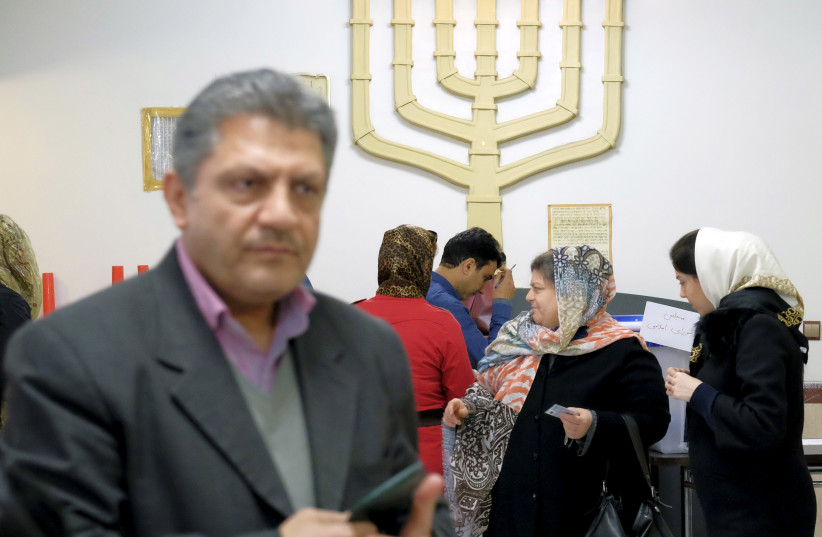In an extraordinary security move, the tiny Jewish community in Tehran took to its Telegram page to announce that it should not visit synagogues because of the protests unfolding against the clerical regime.
Iran expert Ben Sabti told The Jerusalem Post that the Jewish community in the Iranian capital issued an “unusual letter” reading: “Do not visit synagogues in Tehran due to the dangerous situation.”
Sabti said that “there was never such a letter from the community, especially not before the Jewish holidays.”
There has been widespread social unrest against the Iranian regime across the vast nation since the morality police of the Islamic Republic reportedly killed 22-year-old Mahsa Amini for failing to comply with the hijab law.
Sabti, who was born in Tehran and made aliyah in 1987, is an Iran researcher for The Jerusalem Institute for Strategy and Security (JISS). He is also one of the founders of the IDF platform in Persian.

Jewish community keeps distance from protests
“Of course, they [the Jewish community] do not mention it, but it is because of the protests. The Jewish community wants to keep Jews away from clashes,“ Sabti said, adding that the regime accuses Jews “of espionage or cooperating with Israel. It is not a good idea for a Jew to walk around a protest.”
The Iranian regime “could make false charges,” say the Jews are Mossad agents and stage a show trial where they are hanged, Sabti said.
He noted that the ban on visiting synagogues due to the protests “Never happened in the [1979] revolution or during the Iran-Iraq war [1980-1988].
“Holidays are not just holidays in [the] Diaspora, but a chance for [the] community to meet. It is cutting [the] life of [the] community. All Iranian Jews wait for these holidays.”
There are about 9,000 Jews left in Iran, according to official statistics, Sabti said. Iran’s Jews are largely classified as second-class citizens, according to experts.
The demonstrations against the regime have led to fresh calls for the international community to sanction Iran’s regime.
“I am shocked and appalled,” Norwegian-Iranian journalist Mina Bai told the Post.” The Islamic Republic’s brutality gets worse and worse and the international society, instead of punishing the Islamic Republic, rewards them by negotiating with them and inviting [Iran’s president Ebrahim] Raisi to New York. [He spoke at the UN]. This man has fresh blood on his hands.”
